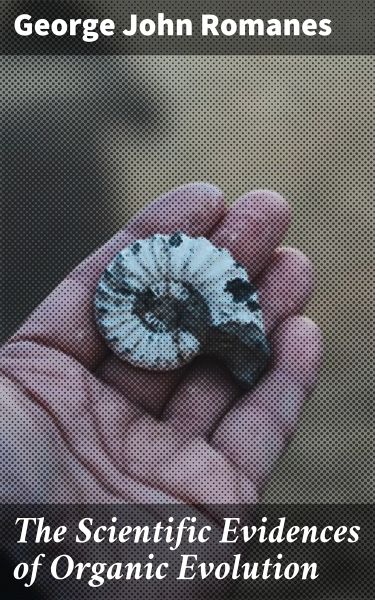
The Scientific Evidences of Organic Evolution (eBook, ePUB)
Unveiling the Scientific Proof of Evolutionary Adaptation
Versandkostenfrei!
Sofort per Download lieferbar
0,49 €
inkl. MwSt.
Weitere Ausgaben:

PAYBACK Punkte
0 °P sammeln!
In "The Scientific Evidences of Organic Evolution," George John Romanes meticulously examines the empirical and theoretical foundations of evolutionary biology, offering a compelling synthesis of scientific inquiry and philosophical reflection. Romanes employs a rigorous analytical style, rich with illustrations and case studies, that situates evolution within the broader context of 19th-century scientific discourse. His insightful exploration of comparative anatomy, embryology, and paleontology not only elucidates the mechanisms of natural selection but also engages with the emerging debates ...
In "The Scientific Evidences of Organic Evolution," George John Romanes meticulously examines the empirical and theoretical foundations of evolutionary biology, offering a compelling synthesis of scientific inquiry and philosophical reflection. Romanes employs a rigorous analytical style, rich with illustrations and case studies, that situates evolution within the broader context of 19th-century scientific discourse. His insightful exploration of comparative anatomy, embryology, and paleontology not only elucidates the mechanisms of natural selection but also engages with the emerging debates surrounding Darwinism, providing a crucial link between faith and science of the period. Born in 1848, Romanes was a close associate of Charles Darwin, and his commitment to understanding the complexities of life evolved from his background in natural science and philosophy. Romanes'Äôs status as a prominent biologist and a member of the Darwinian community endowed him with intimate knowledge of the debates driving evolutionary theory forward. His personal struggles with religious belief significantly colored his perspectives, pushing him to seek a comprehensive understanding of natural phenomena that could reconcile scientific rigor with existential inquiry. This book is essential for readers seeking a profound grasp of evolutionary thought that shaped modern biology. Romanes'Äôs cogent arguments and vivid illustrations make it not only informative but also intellectually stimulating. It is a must-read for scholars and laypeople alike who aspire to engage deeply with the foundational ideas of evolution.
Dieser Download kann aus rechtlichen Gründen nur mit Rechnungsadresse in A, B, BG, CY, CZ, D, DK, EW, E, FIN, F, GR, H, IRL, I, LT, L, LR, M, NL, PL, P, R, S, SLO, SK ausgeliefert werden.













